Circle of John Michael Wright (1617-1694)
In this touching composition a young woman has been depicted wearing a dark coloured dress, draped at the bodice with a gauzy silk scarf and with pearls and large diamonds, over a white chemise. The portrait is datable to between 1673 and 1680 based on the sitter’s hairstyle and clothing. The charming subject is clearly a sitter of status as is evident by the copious number of pearls and large diamonds on display, and the costly dark fabrics. The image serves as a poignant reminder of the historic function of the portrait miniature, which features prominently in the composition. The portable nature of the miniature, and indeed the cost of obtaining one, meant that often these little portraits were the only likeness one would own of an intimate – usually a lover, spouse, or a child. In this portrait the sitter holds a miniature with the portrait of a young boy, between the age of six to ten, who we can presume to be her son. Miniature painting developed in the early 16th century out of the tradition of illuminating manuscripts (hand-written books). In England, miniature was predominantly a portrait art that was undertaken by specialist miniature painters. By the time our portrait was painted artists did include a sitter with a miniature painting, but they are somewhat rare.
By tradition the sitter in our portrait is Ann Curran. It is very likely that our portrait is the same one that was part of the collection of The Most Honourable Maria Arabella, Dowager Marchioness of Lansdowne, and sold after her death as a “Collection of Valuable Paintings” on 13 July 1833, by auctioneers Mr George Robins, at her home Wycombe Lodge, Kensington, London, Lot 2 (as “A painting, portrait of Curran”). Wycombe Lodge was built in 1829, the same year the Dowager took up residence. Mary Arabella Maddox was the daughter of Reverend Hinton Maddox. She married Duke Gifford about 1781 and later she married, John Henry Petty, 2nd Marquess of Lansdowne, son of General William Petty, 1st Marquess of Lansdowne and Lady Sophia Carteret, in 1805. She died on 24 April 1833.
The face has been finely depicted and the costume rendered with a certain amount of simplified control, which was typical of the works of John Michael Wright, who was one of the most successful native English artists of the seventeenth century, and along with earlier contemporaries such as Robert Walker and William Dobson, was one of only a handful to find favour amongst the top echelons of society. He introduced a rather Italian flavour into British painting, unlike all the other portrait painters in second half of the century. When placed next to Lely’s work, for example, Wright’s lively and realistic characterisations tend to reinforce Pepy’s critique that Lely’s portraits were ‘good but not like’ and Pepy’s comment in 1662, upon leaving Lely’s studio and visiting Wright’s, states the contrast between the two: “[from] Mr Lillys… Thence to Wrights the painter’s, but Lord, the difference that is between their two works’.
No other English artist before Wright had travelled and studied so extensively on the continent. During his more than ten years in Rome, and practise of painting in France and ‘other parts’ presumably the Netherlands, Wright had furnished himself with a variety of experience far wider than that of any painter working in Britain during the second half of the 17th century – this experience affords his pictures with an international flair. Most of his sitters conform to no fashionable facial type but have features that are strongly and skilfully individualised as opposed to Lely’s stereotypical depiction of female beauty. Even his choice of colour, higher and cooler in tone in its blues and pinks, is different from Lely’s usually warmer range of apricot, cinnamon, chocolate, and russet. The woman in his portraits who were mostly outside court circles reflect a more traditional female demeanour of quiet and submissive modesty.
Wright’s convincing individuality and success as an artist is in part due to his diverse artistic background and training. Born in London, he first trained in Edinburgh as an apprentice to George Jamesone who had achieved considerable fame and whose work was by no means inferior to the English-born painters working in London. In the early 1640’s he settled in Rome where he studied and acquainted himself with some of the best painters there. In 1648, he became a member of the Academy of St Luke alongside other important artists such as Poussin and Velasquez. In 1656 he returned to London and two years later, in 1658, a publication refers to him as one of the best artists in England.
Provenance: (Probably) Maria Arabella, Dowager Marchioness of Lansdowne (died 1833)
Measurements: Height 89cm, Width 77cm framed (Height 35”, Width 30.25” framed)



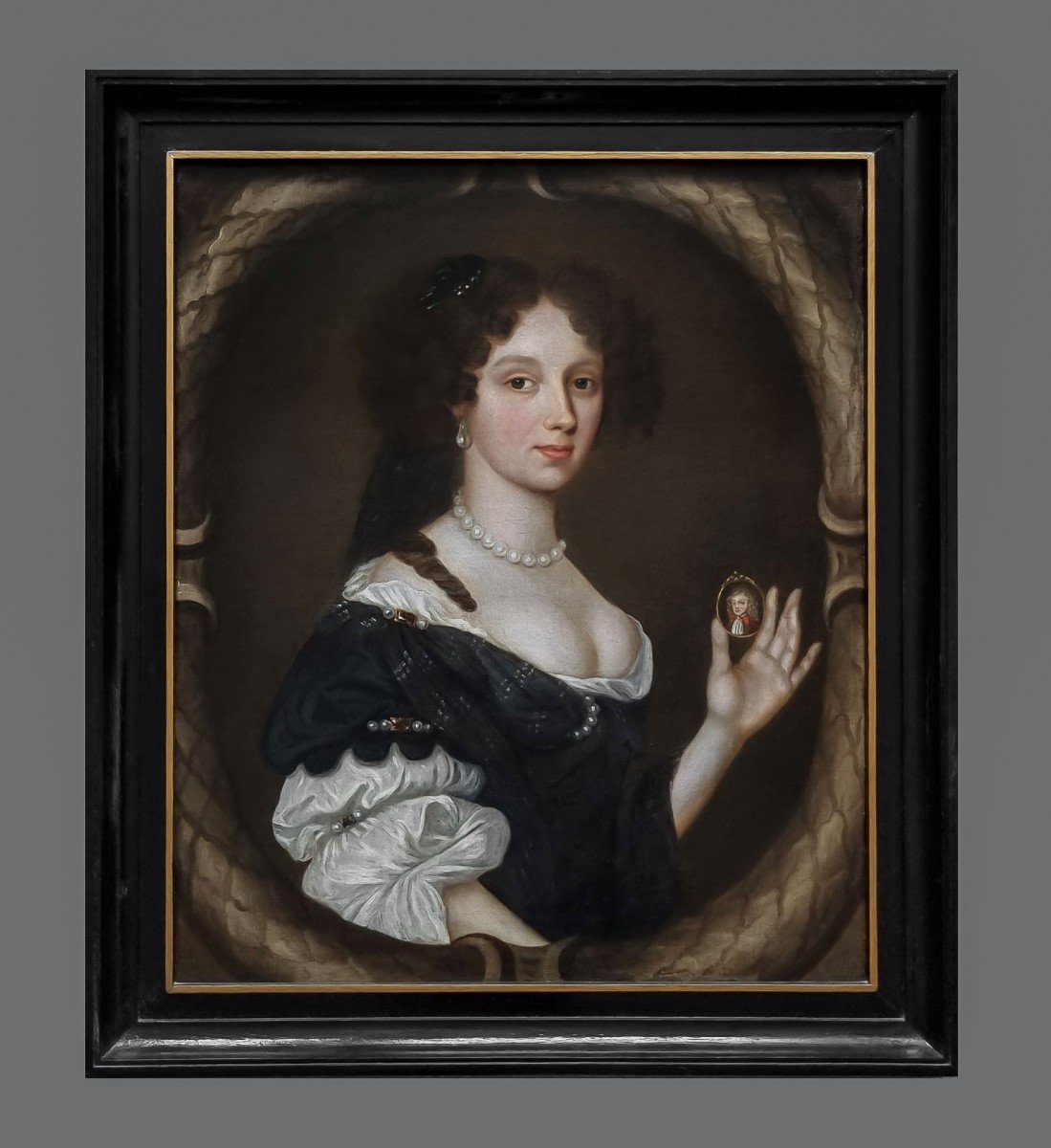
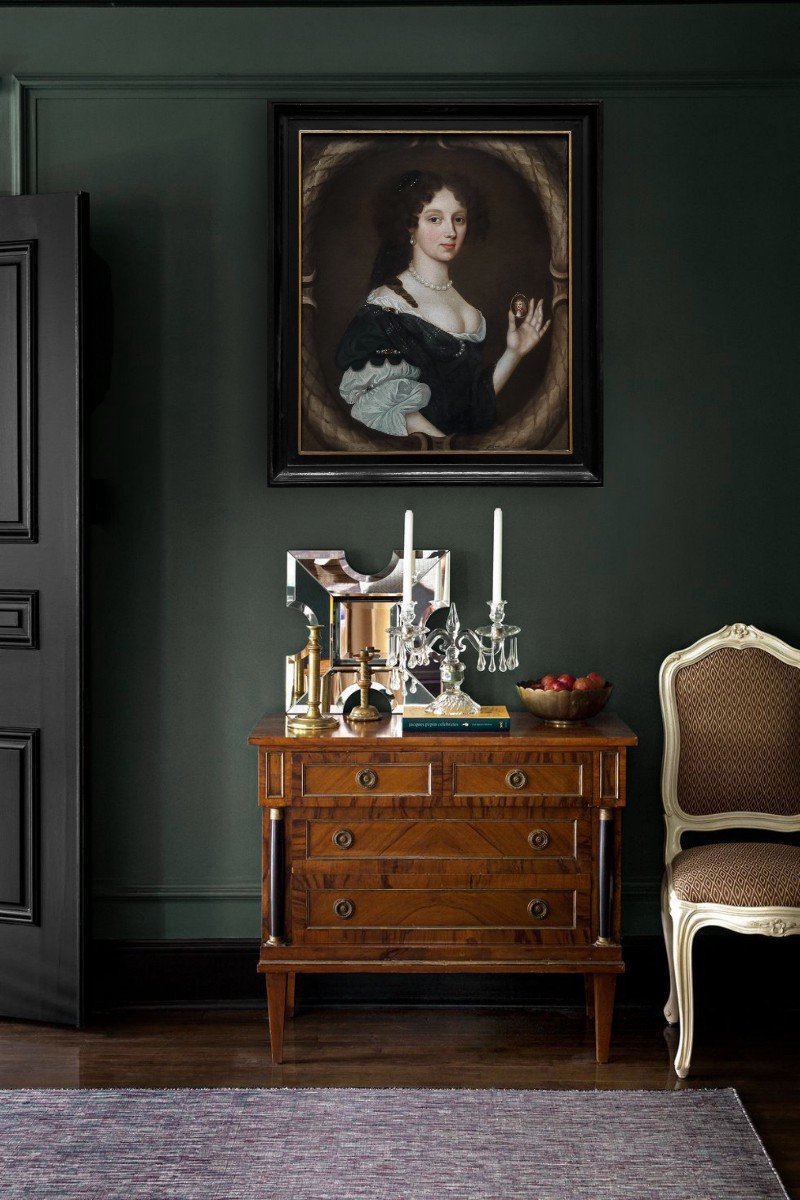

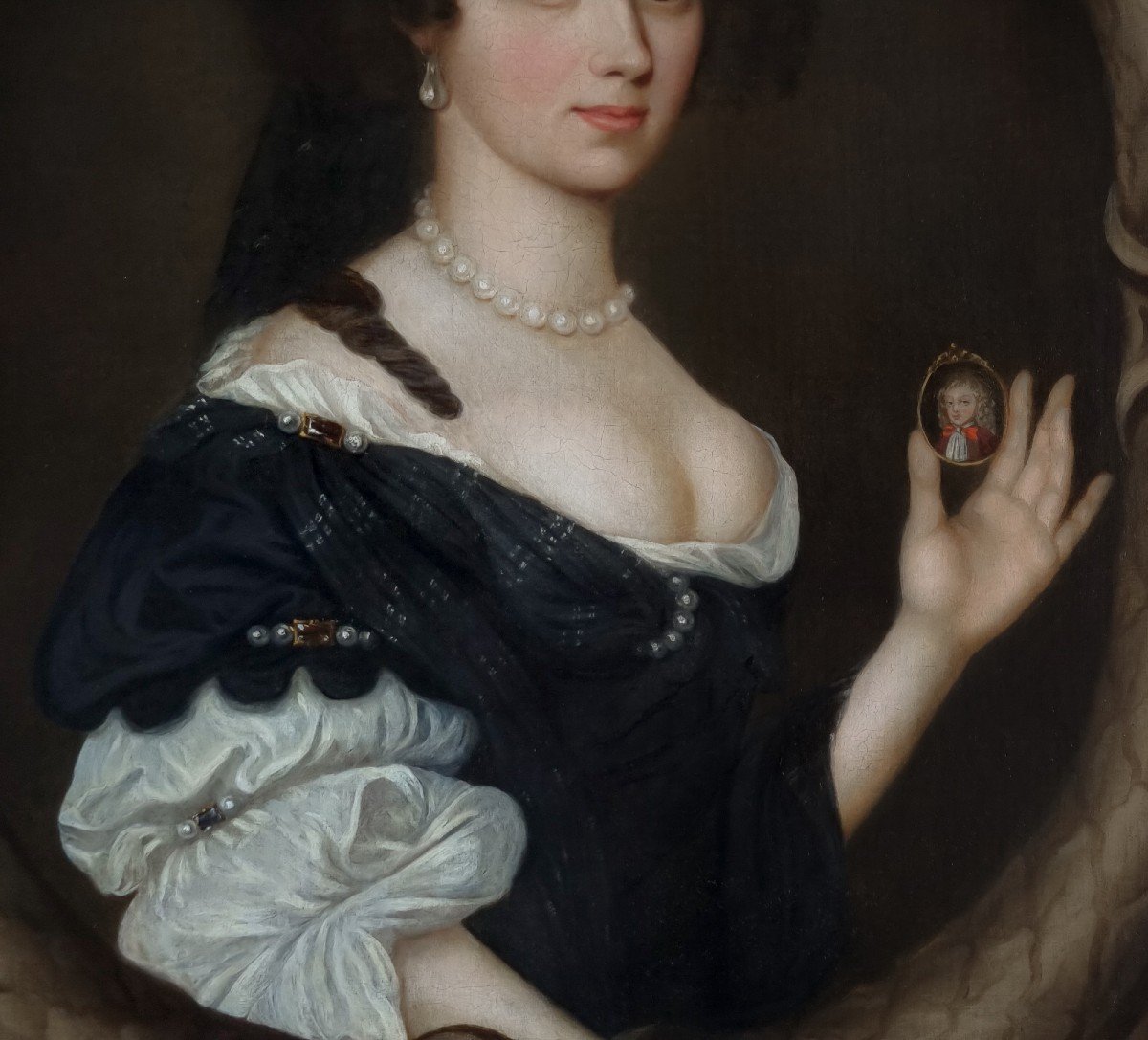
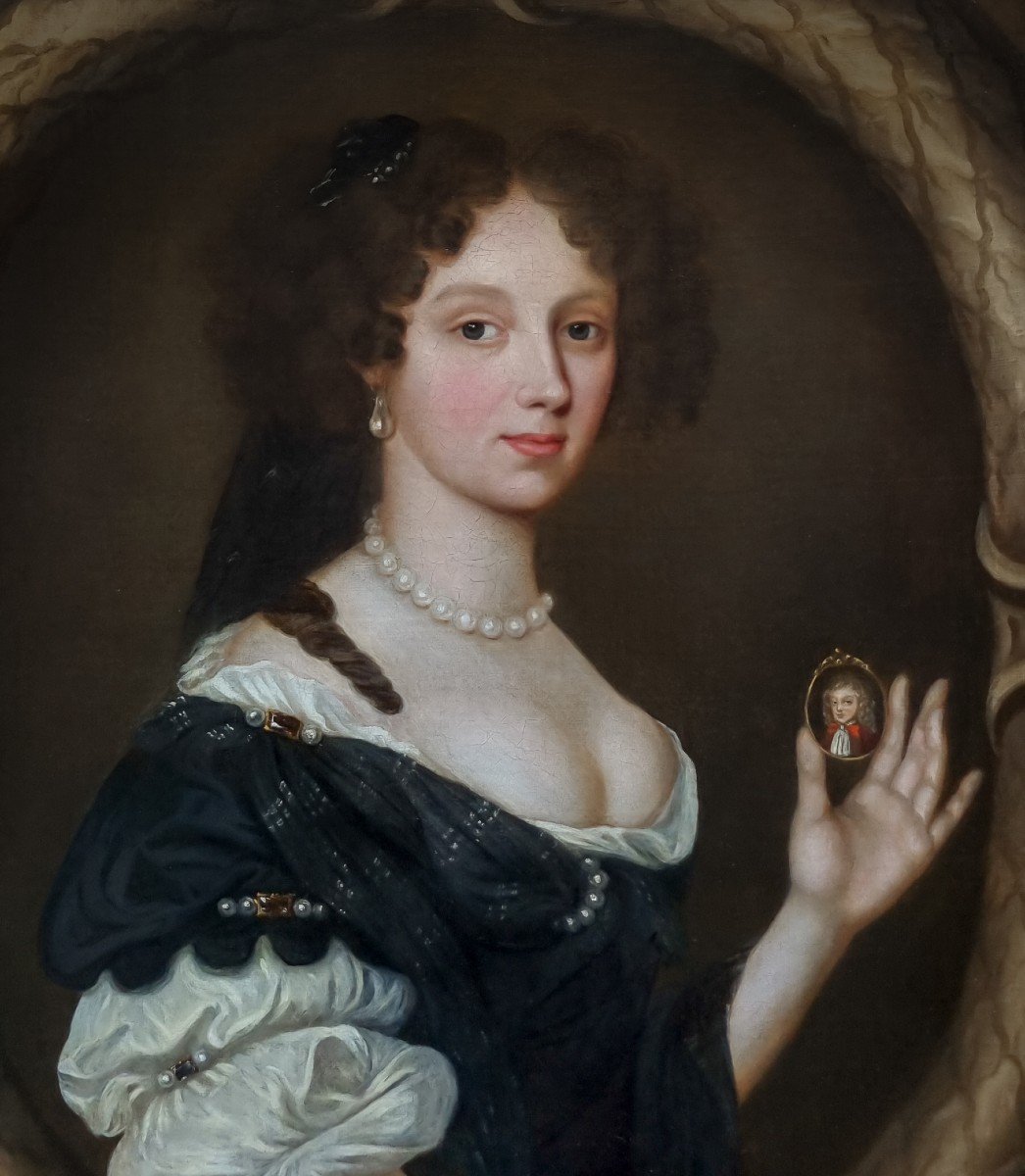
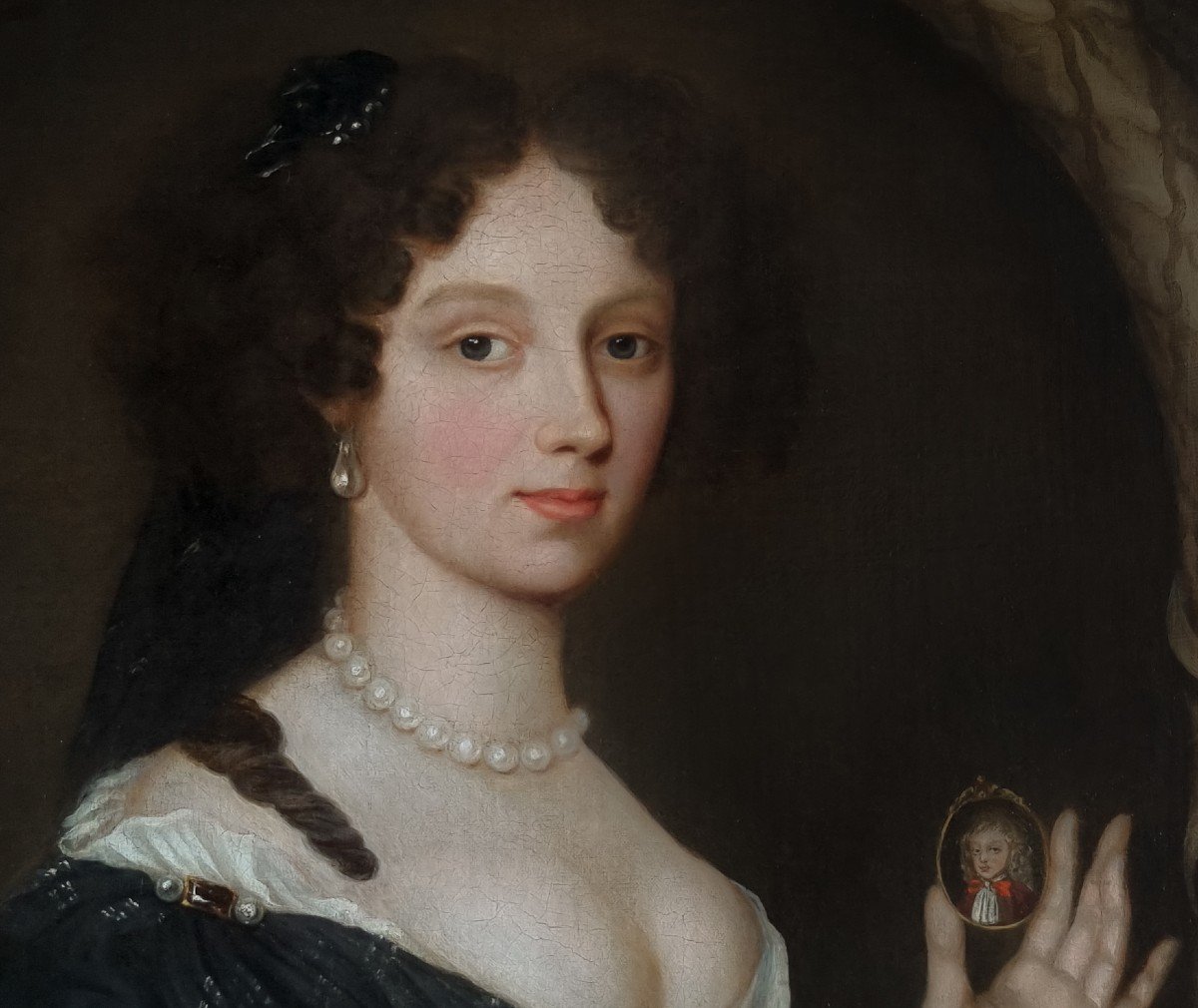
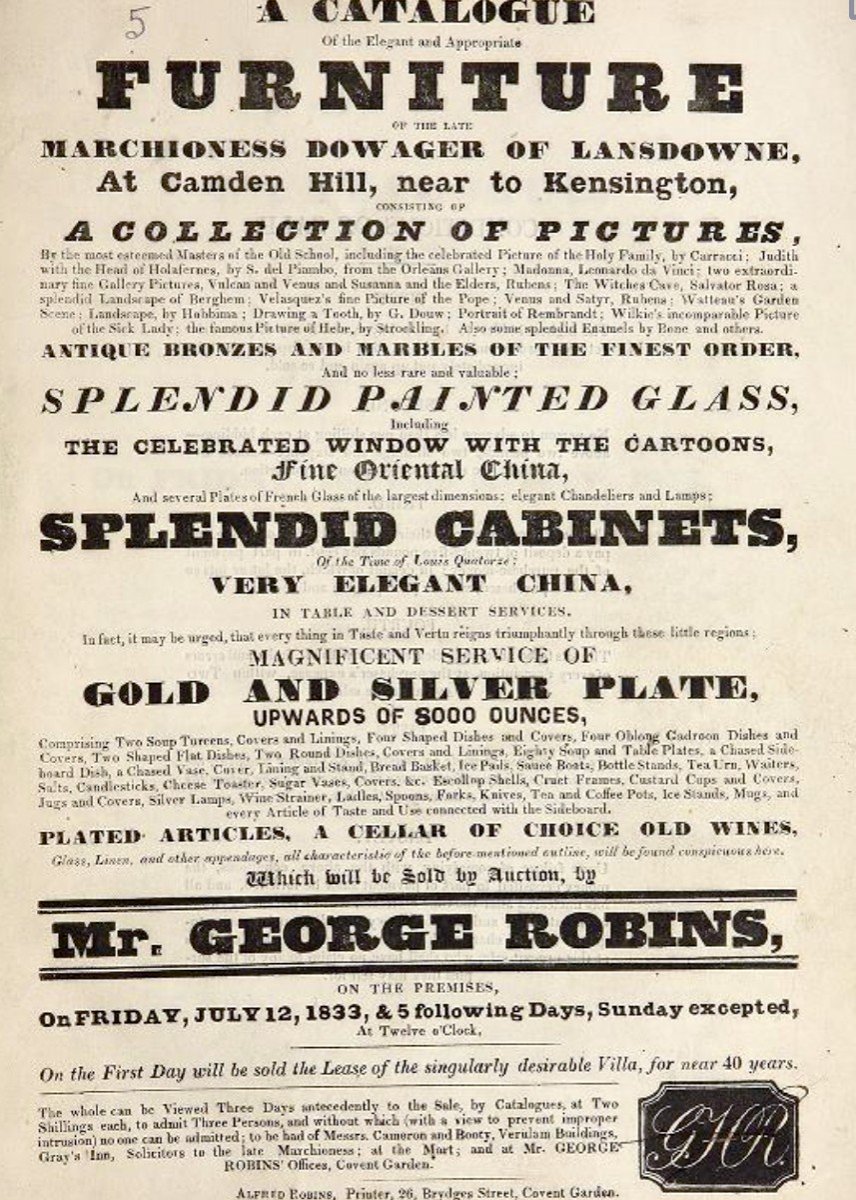
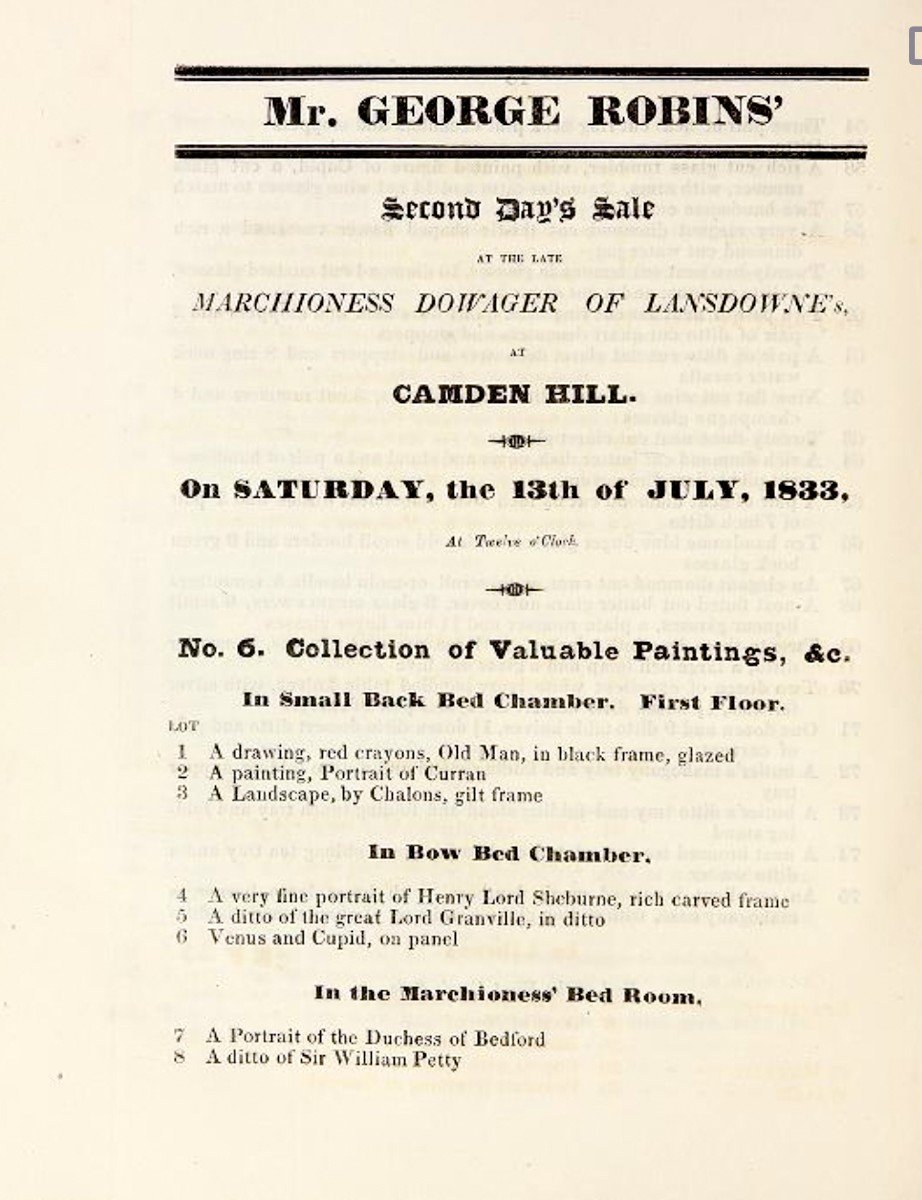






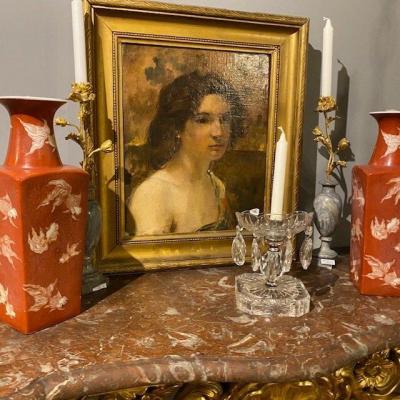

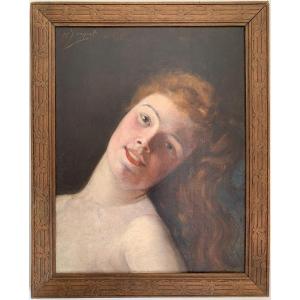
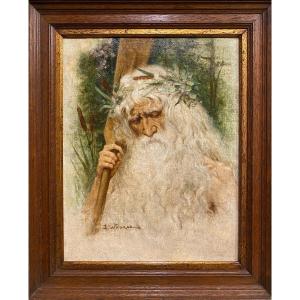
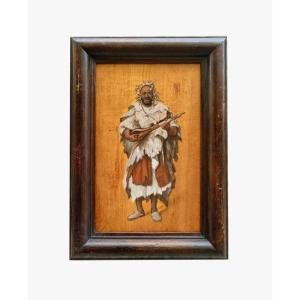




 Le Magazine de PROANTIC
Le Magazine de PROANTIC TRÉSORS Magazine
TRÉSORS Magazine Rivista Artiquariato
Rivista Artiquariato
